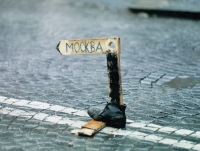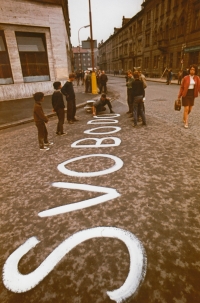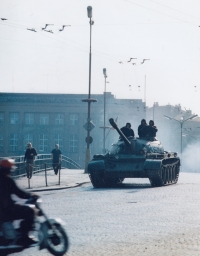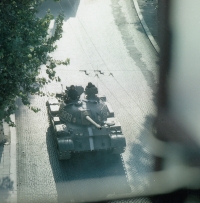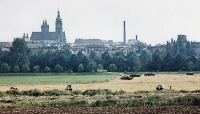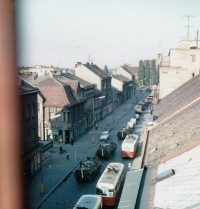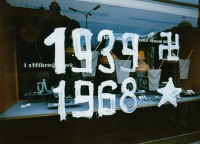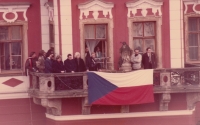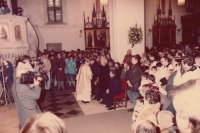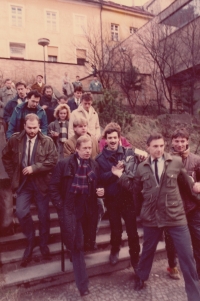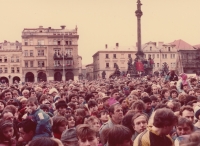I don’t trust the East and never have, they are the aggressors!
Download image
Josef Krejsa was born to Františka, née Šauflová, and Jan Krejsa on 28 February 1941 in Měcholupy. Here, he experienced the Second World War and the subsequent liberation. His father worked as a glassmaker, which the family had to adapt to, moving around depending on which glassworks his father was working in. Josef Krejsa graduated from film school and then began working as a corporate photographer in Hradec Králové at the FOMA company. Thanks to this, he had a unique opportunity to capture the events of August 1968 and the end of 1989 in photographs. At the beginning of the 1960s, he completed his military service. In August 1968, he was involved in distributing pictures with the tricolour and the text “Honour to the Czechs and Slovaks who died during the occupation of our country by the Warsaw Pact armies in August 1968”, which led to his being interrogated by State Security. His photographs of soldiers and tanks could be seen by the public only after the Velvet Revolution. At the end of 1989, he photographed the visit of Václav Havel to Hradec Králové. Josef Krejsa took advantage of the fall of the communist regime to set up a business. In February 2024, he lived in Hradec Králové and still worked as a photographer.
